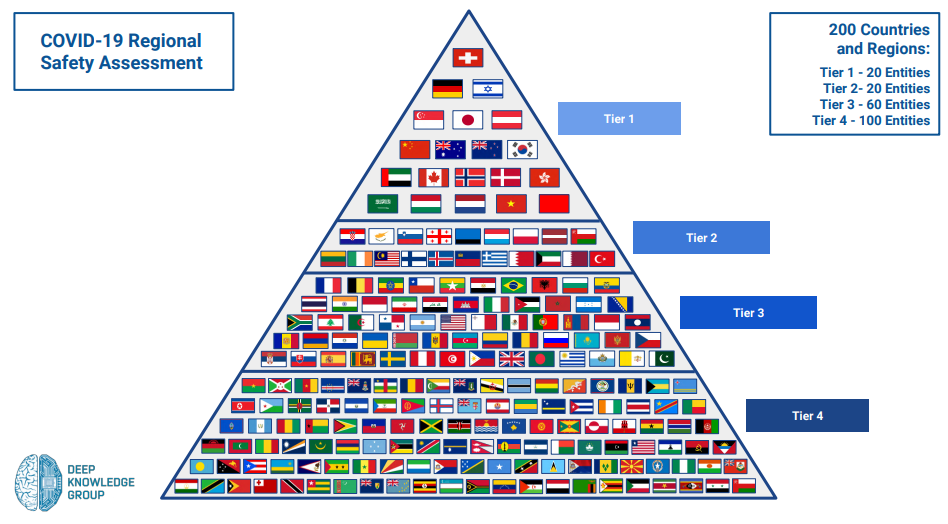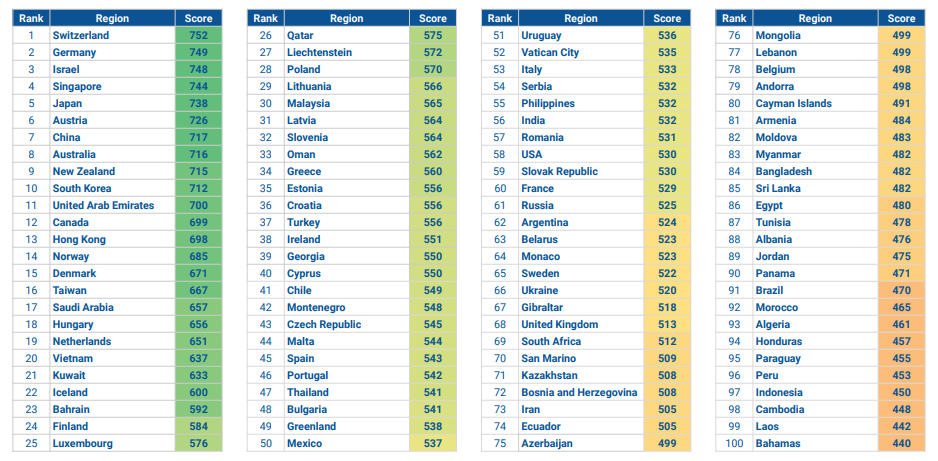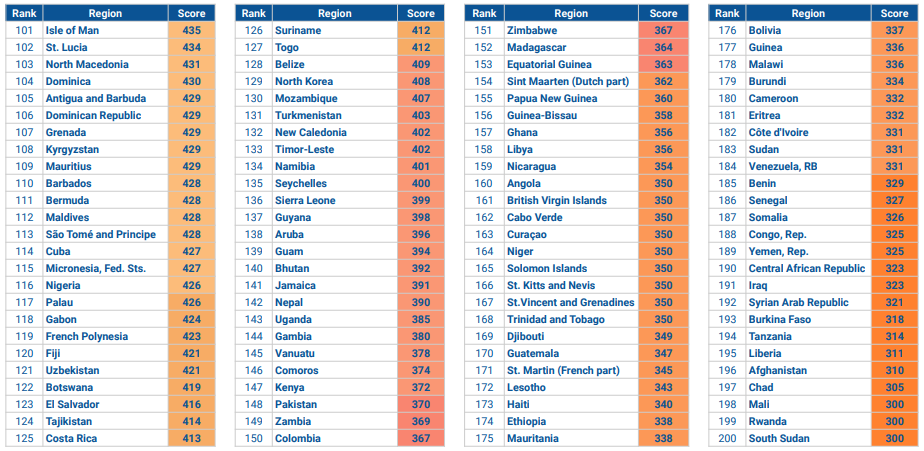The country has begun to relax lockdown measures and reinitiate economic activity and that has meant it has now jumped to the top of the 'Covid-19 Regional Safety Assessment' report from Deep Knowledge Group as the safest country in the world right now. That's a big title to hold!
The big data analysis of 200 countries and regions Covid-19 safety ranking and risk assessment is based on 130 parameters under categories of quarantine efficiency, healthcare readiness, risk management among others.
In Switzerland's case its rise up from third place in the previous edition was linked to its recent emergence from lockdown. "It survived and surpassed a very critical stress-test, succeeding to apply quick and efficient quarantine efforts, monitoring and detection, economic freezing and effective treatment, recovery and release of Covid-19 patients to prevent an overburdening of their healthcare systems," says report.
In particular, its comparatively low level of state debt (roughly 33% of its GDP), and its reputation as the major economic and financial centre of Europe, lends the region a high degree of economic resiliency in the face of the Covid-19 economic crisis being felt around the world. However, the country's dependency on export-related revenues - nearly half its GDP comes from exports to other countries (with two thirds to the European Union and the United States) - could be a major weakness as it is pulled down by poorer performing countries.

Switzerland sits just ahead of Germany which is commended for its economic resiliency and a continuing decline in its Covid-19 infection spread and mortality rates. The country has been engaging in a cautious and slow relaxation of its lockdown and economic freezing mandates for several weeks now, most recently beginning to ease even some of its travel restrictions for European countries.
While Germany does expect its national economy to shrink by 6.6% by the end of 2020, several experts predict that this will eventually be offset by a 10.2% growth in GDP by 2021," says the report. It explains that as long as the region continues to approach jump-starting economic activity slowly, in accordance with the changing realities of the pandemic, "prospects for a comparatively healthy post-pandemic economy are favourable".
Israel, which headed the previous edition of the report now sits in third place due in part to a comparatively higher degree of economic vulnerability resulting from the pandemic in comparison to Switzerland and Germany, but also due to changes in the dynamic of the pandemic within its own borders.
Singapore and Japan make up the top five, while Austria, China, Australia, New Zealand and South Korea complete the top ten. At the bottom end of the ranking, Mali, Rwanda and South Sudan share the final position. The full ranking of the 200 countries is highlighted below.


Overall, the analysis revealed a significant degree of variance in terms of the overall regional safety ranking of the 200 regions and countries analysed, with the largest factors impacting a given territory's specific score being either their fundamental capacity to slow infection spread and treat Covid-19 cases, or the specific policies and strategies they use regardless of their raw capabilities.
This findings strongly exemplify the conclusion that one of the most critical factors impacting regional safety is not the general level of different region's theoretical capacity to withstand and neutralise national emergency situations, but rather the specific policies and crisis management strategies and tactics they employ.
"Regions which began closing borders, lockdown mandates and economic freezing measures comparatively late in the overall pandemic timeline, which continue to prioritise economic recovery over public health and safety, which do not utilise sufficiently widespread testing, and which do not proactively build bridges across government departments and between the private and public sectors in order to strengthen surplus healthcare resources against the threat of current and future outbreaks consistently score lower than one would expect considering their raw resources, capacity and potential to maintain and optimise regional safety amid the current pandemic," according to the report.